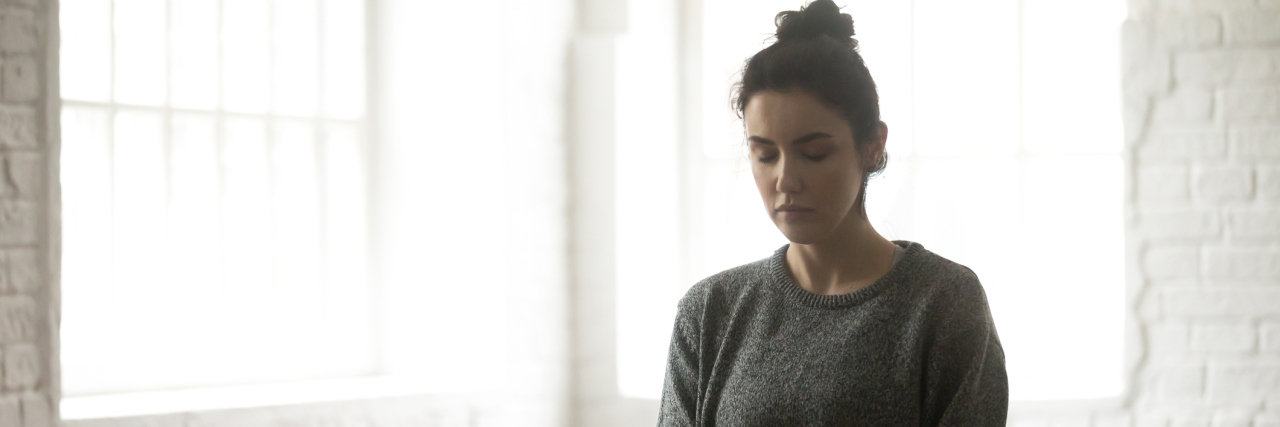How Meditation Helps Me Cope With Stress and Chronic Illness
Over the past few months, I’ve really been struggling with stress. If it’s not work, it’s something going on in my personal life, with my family or my friends. I was just accepted for a masters by research degree, which I’ll be starting part-time from January, and I’ve been working on my next work of fiction, a semi-autobiographical novel, so, apparently, I enjoy being stressed out.
The fact is that I like to be busy. My mind needs to be stimulated, else I get bored. I always need a project. But that trait doesn’t mesh well with a chronic illness. Fibromyalgia involves chronic pain and fatigue. It isn’t your usual tiredness; it’s your flu-like, “I’m so tired I can’t do anything” type of fatigue. Before I was diagnosed, I was barely able to keep my job. Weeks went by before the house was cleaned, and I barely cooked meals from scratch. As time goes on, with treatment and medication, I can manage a bit more, which I always take to mean that I should do more.
That mindset doesn’t always work when you live with a chronic illness. Living with fibromyalgia means compromise – if I do X, I can’t do Y. If I go out for coffee with a friend on Saturday, I can’t spend Sunday cleaning, as I need time off to recover from a full working week. It’s not the best way to live, but it is the only way I can manage things. When I have extra things putting pressure on me – a deadline at work, a falling out with a friend – my body doesn’t deal with it very well. I’ve had my very first migraines this year, and I have not enjoyed the experiences. Stress can have so many negative effects on the body anyway, but when you’re dealing with a chronic illness, stress can kick you into a flare, leaving you in pain and exhausted.
Lately, I’ve been finding it difficult to switch off. With so many thoughts in my head, clamoring to be heard, it can be hard to actually relax, take time off, recharge. So I’ve turned to meditation. Headspace is a free app that gives you a beginners package free of charge, but you have to subscribe to get full access to all of the sessions. They have packs for anxiety, stress, self-esteem, anger, productivity and a section for kids. I’m still on the basic pack, and it isn’t cheap to subscribe, so I’m still using the free membership.
Every workday, during my lunch hour, I take five minutes out to relax. I sit in my car, put on my wireless headphones and close my eyes. You have to make sure you won’t be interrupted, so tucking yourself away in an isolated corner or room – or your car – is ideal. I’m still learning the basic techniques, but it gets easier with every session.
It’s not about emptying your mind. We all know it’s practically impossible to completely get rid of all of your thoughts. Several times during a meditation session, I’ve realized I’m thinking about thinking! The general idea is to acknowledge the thoughts and let go of them, bringing your attention back to your breathing and your sense of self, the weight of your body. It’s about being present in the moment, flicking the intrusive thoughts away, just for a few minutes.
The result is that I feel more relaxed afterwards, and more capable of dealing with the rest of the day. If I feel a tension headache coming on, taking a few moments to be calm and still, in both body and mind, seems to help me carry on each day.
I’ve also downloaded the app Calm, which has quite a lot of free sessions, but they’re usually longer, and accompanied by a soothing sound – I’ve chosen waves softly breaking over the sand. I tend to use this app if I’ve got a headache or I’m not feeling my best, struggling to switch off and go to sleep. I’ve fallen asleep several times while listening to it! The medication I take for fibromyalgia – amitriptyline – means I don’t often struggle to get to sleep, but I don’t always have restive, refreshing sleep, which is more important. With the Calm app, I find that I sleep better too.
I had preconceived ideas about meditation before trying it. I went for Pilates classes instead of yoga because, amongst other reasons of course, I was concerned about the meditation side, thinking I’d feel silly. Meditating alone means I don’t have to feel silly – nobody knows what I’m doing, sitting in my car with my eyes closed, headphones on. Meditation and mindfulness are becoming more popular, and it’s no wonder, in our fast-paced world. When you live with a chronic illness, everyday life can be even harder to deal with. Meditation isn’t for everyone, and it won’t cure anything, but it seems to be giving me a crutch, a way of dealing with stress and anxiety.
We want to hear your story. Become a Mighty contributor here.
Thinkstock photo via fizkes.

